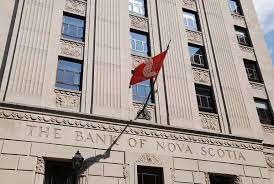DOJ and CFTC Settle Spoofing Case with Scotiabank for $127.4 Million

In the last five years, the Justice Department and the Commodities Futures Trading Commission have aggressively prosecuted “spoofing” cases. While the government’s record in these cases has been mixed, the government has been successful in securing guilty pleas and winning high-profile trials against traders.
Prosecutors have continued to push spoofing prosecutions to root out the conduct. “Spoofing” refers to traders who engage in bogus conduct by entering fake orders and quickly canceling them prior to execution to manipulate the market price for more favorable terms. Traders who engage in such conduct manually enter bogus trades to trick high-speed traders into making bad trades.
Some judges have been lenient in sentencing convicted defendants. For example, two former traders were sentenced to time served and another defendant received time served after spending 10 months in prison while being extradited from Australia to the United States.
In its latest settlement, DOJ and the CFTC collected $127.4 million from Scotiabank for the conduct of four traders who engaged in spoofing over an eight-year period, 2008 to 2016, and made false statements to the government. A former Scotiabank trader, Corey Flaum, cooperated with ongoing federal criminal investigations into gold, silver, platinum and palladium markets.
Scotiabank agreed to a three-year deferred prosecution agreement (“DPA”) and appointment of an independent compliance monitor for a three-year term. DOJ specifically cited Scotiabank’s flawed compliance program and its failure to properly enhance its compliance program. DOJ and Scotiabank agreed to the filing of a two-count Information charging Scotiabank with attempted price manipulation and wire fraud.

Between 2008 and 2016, four Scotiabank traders located in New York, London and Hong Kong engaged in manipulative trading in the gold, silver, platinum and palladium futures contracts markets on the New York Mercantile Exchange and Commodity Exchange.
The $127.4 million penalty consisted of two separate resolutions with DOJ and the CFTC. Under the DOJ settlement, Scotiabank agreed to pay a total of $60.4 million consisting of: $42 million for spoofing and attempted price manipulation (half of which could be offset by payment to CFTC); $11.8 million in disgorgement; restitution for $6.6 in market losses.
Separately, in the CFTC settlement, Scotiabank agreed to pay $17 million for false and misleading statements. Scotiabank also agreed to pay $50 million to resolve swap dealer business conduct, compliance and supervision failures for tens of thousands of swaps.
During the offense period, three compliance officers had substantial information regarding, but failed to stop, illegal trading by one of the traders between 2013 and 2016. The trader provided information regarding the nature of his trading to a compliance officer, who shared the information with two other compliance officers. Thereafter, the three compliance officers failed to undertake any further investigation of the trader’s practices or provide guidance or training. The three compliance officers later in 2016 reviewed the trader’s activity after six instances had been flagged for possible spoofing; again, the three compliance officers failed to take any action or follow up on the matter.

DOJ cited the fact that Scotiabank has improved its compliance technology and trade surveillance tools, doubled its compliance budget and added more than 200 full-time compliance positions. Despite these improvements, at the time of the settlement, Scotiabank was not fully implemented and tested to demonstrate effectiveness. As a result, DOJ insisted on appointment of a three-year independent compliance monitor.
DOJ cited Scotiabank’s compliance program failures and contribution to the criminal violations as the principal reason that DOJ concluded that Scotiabank should pay a fine calculated at the top of the applicable sentencing guideline range.














